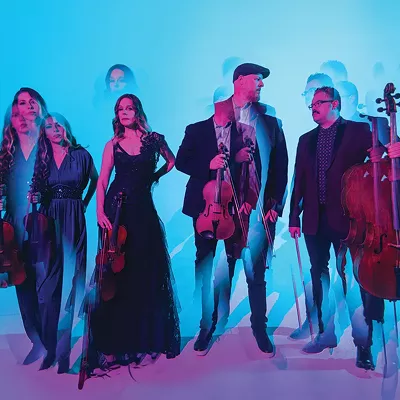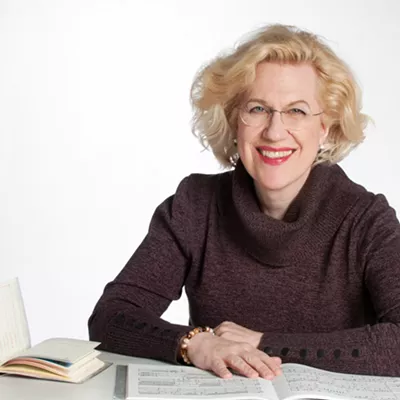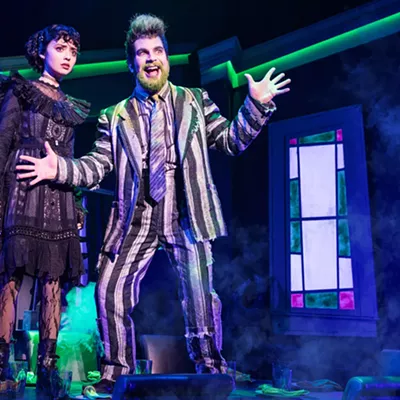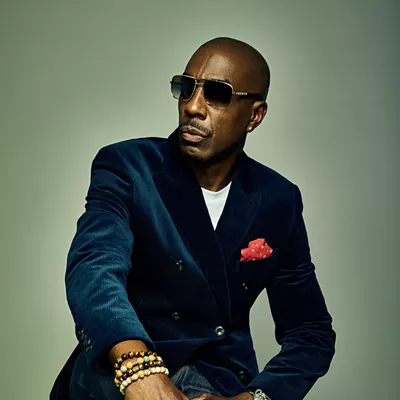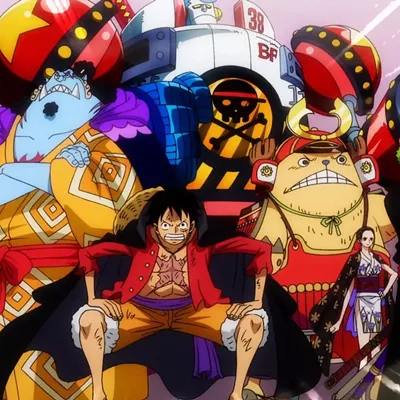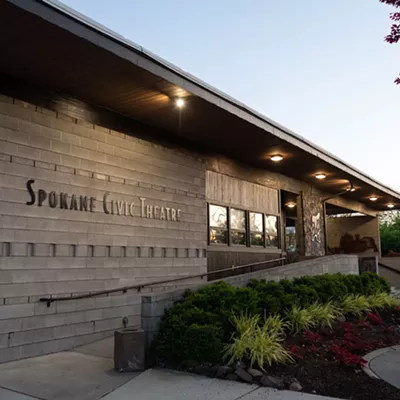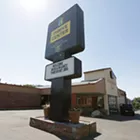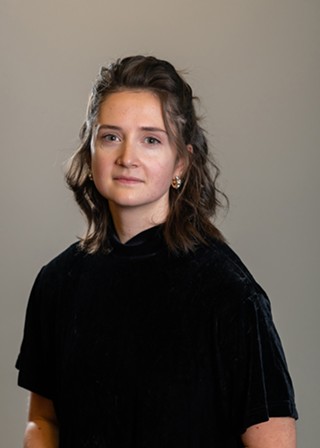
Ninety-one years later, Joan Degerstrom sponsored an evening with the Spokane Symphony and Yo-Yo Ma. The Fox became, once again, a gravitational pull in Spokane.
Yo-Yo Ma has reached the level of stardom most classical musicians only dream of, the kind of fame Spokane Symphony music director James Lowe calls “Sesame Street cred.” If you can name only one living classical performer, it's probably Ma. He’s arguably the best cellist to ever play, one Washington Post critic says (and Elmo certainly agrees). He can guarantee a sold out performance, which is a great way for struggling symphonies to start their season.
The Wednesday evening concert started at 8 pm, and doors opened an hour before. By 7:15, there was a pleasant hum in the foyer, with Frank Sinatra playing in the background and wine being sold by the sippy cup. Plenty of gray hairs, sure, but also man buns and wooly cardigans, satin gowns and gloves, Hawaiian shirts and sunglasses. A young teen sported a colorful Among Us suit and a mohawk.
Every row of the theater was filled. Jeff vom Saal, the symphony’s executive director, didn’t even have a seat.
The symphony launched into their first two pieces without the soloist. Dvořák’s “Slavonic Dances” was energetic and optimistic. Then came Schubert’s Symphony No. 8 in B minor, “The Unfinished.” The enigmatic work shifts quickly between moments of mourning and relief, then tender sweetness shattered by timpani, then pleasing sadness stomped out by determination, finally concluding peacefully. If Schubert wrote a symphony describing the emotional rollercoaster of a post-pandemic, multi-million dollar classical music organization, it might have sounded a lot like this one.
Then, after intermission, Yo-Yo Ma. He got a standing ovation by just walking onstage. Tight hugs to the conductor and concertmaster. Heart hands to the audience. Swaying and smiling as the orchestra introduces Dvořák’s Cello Concerto in B Minor, which the program calls the most important cello concerto ever written. He steals the theme introduced by the French horn, aggressively etching it into the air with his bow, then melting into a heartbreaking melody.
During dress rehearsal, he told the orchestra they weren’t showing the audience the music, they were sharing it, musicians and listeners, all together.
The concerto ends with an exposed, mournful solo and a crashing finale. Another standing ovation, more tight hugs. Then a second bow, this time running over to the cello section, wrapping the first chair, John Marshall, in his arms (which turns Marshall's face turn beet red), then two arms high above his head and two thumbs way up.
The calls for encore are inevitable.
Ma comes back onstage with his cello and a microphone. He compliments the hall. He is delighted by how friendly the Spokane Symphony is, since, in his words, “friendliness is the basis for great music making.” Then he sits in the soloist chair. “Let me tell you a story,” he says.
He tells the story of Joan Degerstrom. He waves to her in the front row. He thanks her for loving the Fox. For an encore, he plays the love theme from Cinema Paradiso, a film about a young boy falling in love with cinema. Then, with one swoop of his bow, he gets the whole audience to sing, “Happy birthday dear Joan, happy birthday to you!” ♦




